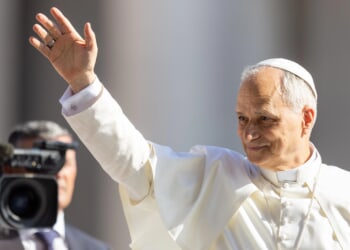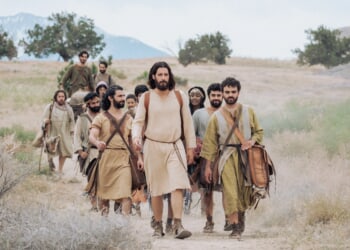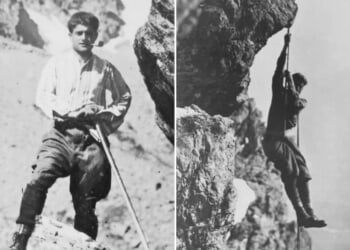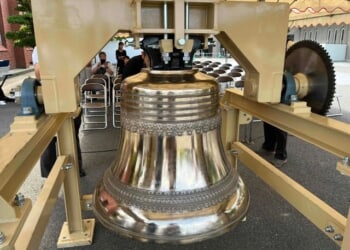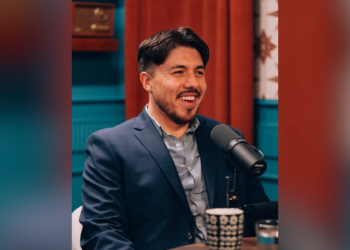Washington D.C., Jun 17, 2025 /
15:22 pm
The White House Religious Liberty Commission held its first hearing in Washington, D.C., on Monday where members received a number of recommendations on how to protect religious freedom in the United States.
Chairman of the commission Texas Lt. Gov. Dan Patrick and Vice Chairman Ben Carson hosted the meeting with members Ryan Anderson; Bishop Robert Barron of Winona-Rochester, Minnesota; Carrie Prejean Boller; Allyson Ho; and other figures in the religious liberty movement.
The June 16 hearing featured guest speakers Josh Blackman, associate law professor at South Texas College of Law; Stephanie Barclay, law professor at Georgetown Law School; and Kristen Waggoner, CEO and president of the law firm Alliance Defending Freedom (ADF).
The three lawyers offered numerous suggestions for the commission to report to President Donald Trump on how to help preserve and strengthen religious liberty in the U.S.
Pointing to multiple religious freedom court cases over the last few decades, Blackman said: “If you’re giving money to nonreligious groups, you can’t discriminate against religious groups.” Religious groups, he said, should be treated “the same as everything else.”
Blackman’s other recommendations were for the commission to “bring more cases from the Department of Justice’s (DOJ) perspective” to the Supreme Court and “have more amicus briefs” from the Justice Department.
“If the DOJ was willing to file more amicus briefs and look for good vehicles to overrule a case … to broaden an establishment clause jurisprudence, I think that would be a helpful recommendation from this commission,” Barclay said.
Waggoner, who works directly with those affected by religious liberty violations at ADF, offered five main recommendations to the committee.
“The United States right now is the last Western country in the world to provide robust religious freedom and free speech protections,” she said.
“One of the things that I hope that this commission recommends to the president is that he use the platform he has in the administration … to help Americans understand what the threat is and the goodness of practicing one’s faith.”
It is “critical” for Americans to be educated “on what their rights are,” Waggoner said.
“For so long, we would see laws that were being passed that were blatant violations of constitutional rights,” but now “we see this vibe shift,” Waggoner said. “I would submit it’s a temporary one. It’s a change of power, not a change of heart. We need a change of heart.”
Waggoner suggested the government should “restore the conscience and religious freedom division at [the U.S. Department of Health and Human Services] and establish similar divisions within other department’s civil rights offices, and ensure equal access to federal funding is consistent with recent Supreme Court precedent.”
She highlighted that “all federal conscience laws” must be enforced and “recipients that violate those laws” need to be held accountable.
She also said the government should “end the financial targeting of people of faith.”
Authorities need to “ensure the IRS doesn’t discriminate against houses of worship or religious organizations and protect these entities from unjust penalties” and “guarantee that prior weaponization of financial regulations and markets against people of faith never, ever happens again,” she said.
(Story continues below)
Subscribe to our daily newsletter
Waggoner also said the government should “protect people of faith from the regulatory state” by developing “rules that prevent future administrations from labeling as domestic terrorists Americans who simply purchased a religious text or spoke at a school board meeting.”
The U.S. should also “promote religious freedom on the international stage,” she said, working “in collaboration with the ambassador at large for international religious freedom” to “implement President Trump’s 2020 executive order on advancing international religious freedom to ensure that religious freedom remains a central priority of U.S. foreign policy.”
Trump, meanwhile, should “appoint judges with an established record of courage, character, and conviction who will apply the law without fear of public opinion,” Waggoner said.
The commission was established on May 1 to “vigorously enforce the historic and robust protections for religious liberty,” according to Trump.
Since its creation, a number of prominent Catholics have been appointed by the president including Barron, Cardinal Timothy Dolan, and Archbishop Salvatore Cordileone of San Francisco.
The committee will hold its next hearing on religious liberty in September.




